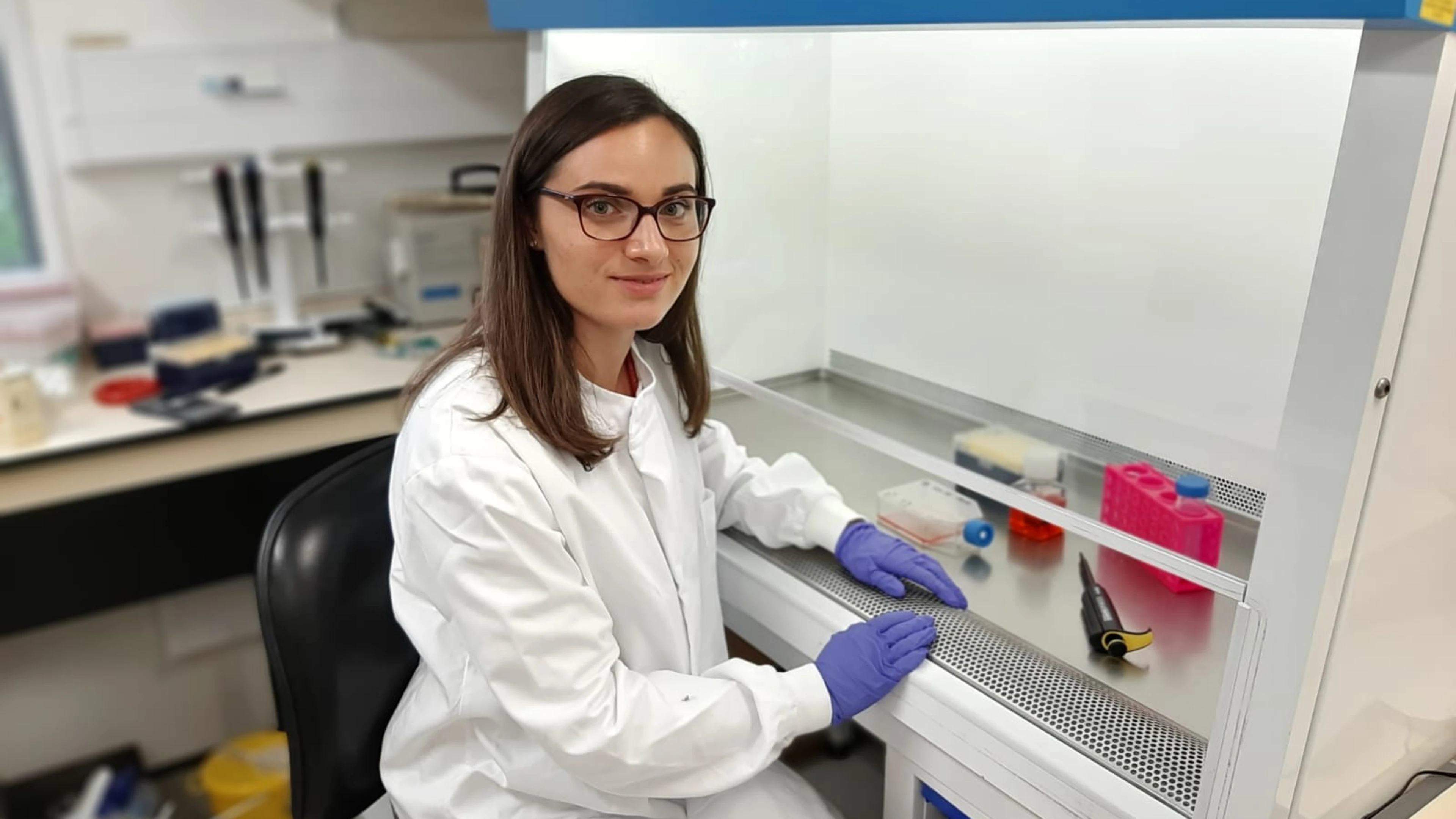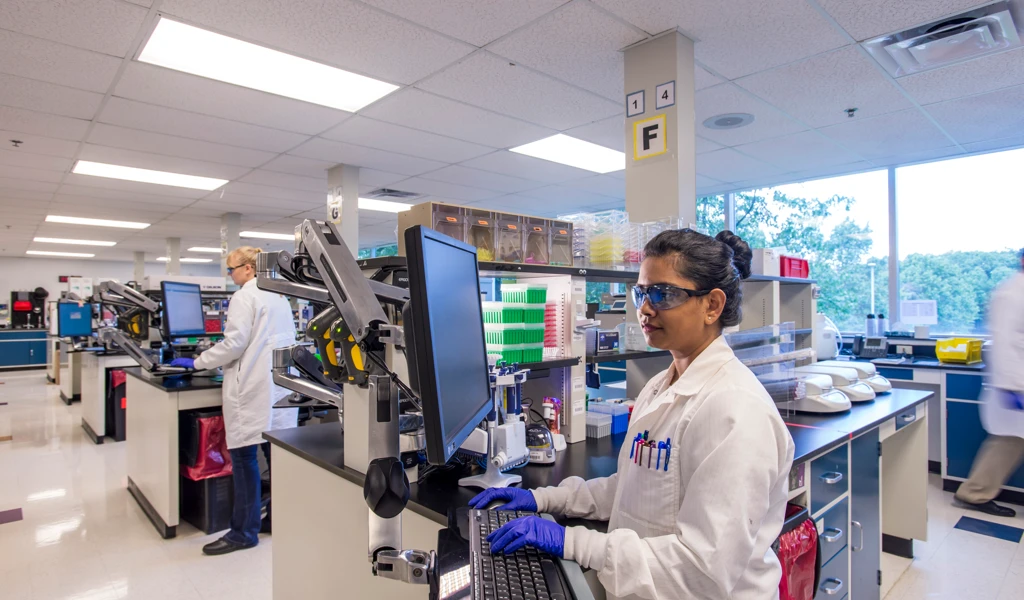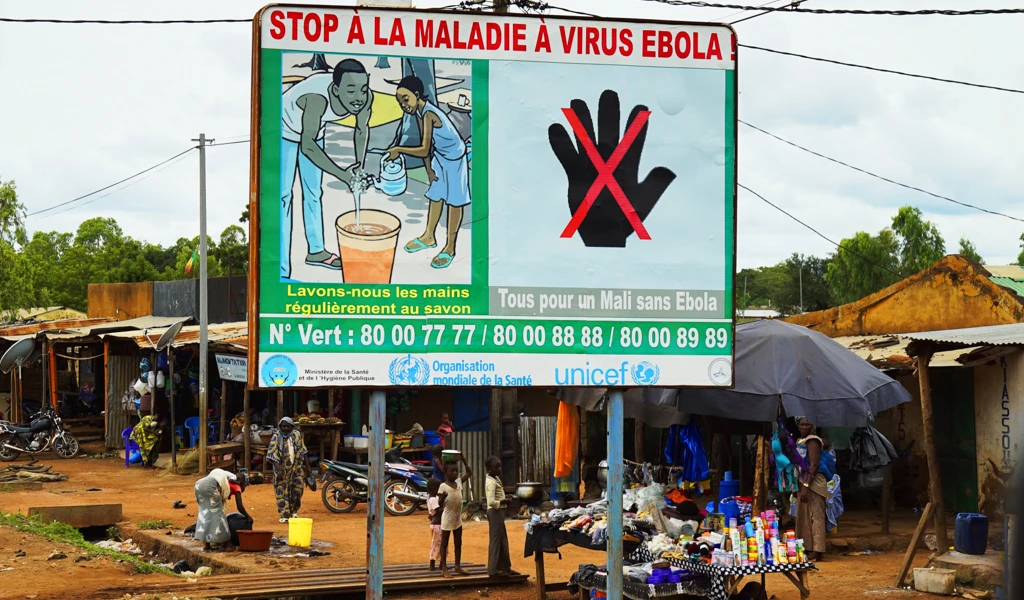Two more laboratories join CEPI's centralised network to standardise assessment of COVID-19 vaccines

The National Institute for Biological Standards and Control (NIBSC) in the UK and Q2 Solutions in the US have joined CEPI's centralised laboratory network to harmonise evaluation of the immune responses generated by multiple COVID-19 vaccine candidates undergoing preclinical and clinical (up to Phase II) testing.
Open to all COVID-19 vaccine developers around the world (both CEPI-supported and other COVID-19 vaccine developers), the new network aims to standardise the evaluation process and minimise variation in results that can otherwise occur from individual laboratory assessments using different tests and techniques to carry out their assessments.
CEPI is also partnering with the NIBSC to create an international antibody standard against COVID-19. Available to vaccine manufacturers and regulators worldwide, the antibody standard will be developed from a pool of samples from patients who have been infected and recovered from COVID-19. It will act as the ‘gold standard' to compare results for tests measuring the immune response (antibodies) from individuals who have been naturally infected or who have received a COVID-19 vaccine candidate. The antibody standard will be endorsed by WHO Expert Committee on Biological Standardization (ECBS). Through having a globally available standard, researchers can easily compare the immune response generated by different vaccine candidates with the immune response produced from natural infection.
EXPLAINER BOX – WHO IS PART OF CEPI’s CENTRALISED LABS NETWORK?
The centralised network is a global consortium of seven testing laboratories worldwide which now includes: The National Institute for Biological Standards and Control (NIBSC) in the UK and Q2 Solutions in the US, alongside Nexelis (Canada) and Public Health England (PHE, UK), VisMederi Srl (Italy), Viroclinics-DDL (The Netherlands), icddr,b (formerly International Centre for Diarrhoeal Disease Research, Bangladesh), and Translational Health Sciences and Technological Institute (THSTI, India).
The labs applied to a Call for Proposals that we put out earlier this year and were selected based on their quality system, their capacity to perform the required tests, their ability to work internationally with other labs to use common protocols (the same methodologies), and their record of receiving and handling samples from multiple geographical locations, among other criteria.
Additional laboratories are likely to join in later months to assess Phase III clinical trial samples.
As part of the centralised network, the NIBSC and Q2 Solutions will use the same testing reagents—initially shared by two of CEPI's other partner laboratories, Nexelis in Canada and Public Health England Porton Down in the UK—and follow the same methods, to ensure comparability in results. The different tests, or assays, allow us to evaluate the serological (based on antibodies) and cellular (based on T cells) immune responses elicited by different COVID-19 vaccine candidates. The higher and more specific the immune response is, the more likely the vaccine candidate will be able to protect the trial participant against virus infection.
Any results obtained through the network on CEPI's nine COVID-19 vaccine candidates will help us actively manage our portfolio. Built on the principles of speed, scale and access, we have created the world's largest and most advanced COVID-19 portfolio, having deployed up to USD $895million in 9 COVID-19 vaccine programmes. The programme is also open to non-CEPI funded COVID-19 vaccine developers to ensure all can benefit from this analysis to facilitate future regulatory decisions.
With these additional laboratories joining the network, it will be easier for vaccine developers in the local regions to ship their clinical trial samples to their nearest laboratory (i.e., saving costs and reducing time that they would they have to ship their samples to another location, potentially also helping to speed up the vaccine development process).
We are delighted to bring the NIBSC and Q² Solutions on board our centralised laboratories network to get a more accurate picture of which vaccine candidates have the best safety and immunogenicity profiles. Through harmonising assessment, we can speed up the selection of promising COVID-19 vaccine candidates to later help developers and regulators in the licensure decision-making process.
EXPLAINER BOX – WHAT IS AN ANTIBODY STANDARD?
In practice, an International Antibody Standard is usually a pool of serum samples collected from different patients that have been infected and recovered from a disease. It can be used in testing (assays) as a mean to compare results of samples from individuals who have received a vaccine candidate in clinical trials.
Through comparing the test samples relative to a comparator antibody (the international standard) you can have confidence in the test results and make comparison between laboratories. This helps to decide whether the vaccine under assessment is likely to be a good vaccine (inducing a good immune response in vaccinated individuals).
The NIBSC will create the international antibody standard and will store this in their laboratory ready to share with any vaccine developer/lab that needs it worldwide. The NIBSC antibody standard will be submitted for review to the WHO Expert Committee on Biological Standardization (ECBS) in upcoming weeks.
Separately, CEPI is also working with the NIBSC for the development of international antibody standards for our other priority diseases - Lassa fever, MERS, Nipah, and Rift Valley fever.
Standardisation of assays in vaccine development and more centralised measurement of vaccine responses is key for robustness of the data obtained. The NIBSC is well placed to deliver this for the benefit of public health in the fight against the pandemic.
We are honoured to be selected as one of the laboratories involved in the CEPI network, as we work as a team to fight against COVID-19. We are committed to be a collaborative partner, utilizing our talents, resources and comprehensive portfolio of assays supporting the development of vaccines to serve the greater cause we all work for, to the benefit of the health and well-being of people across the globe.”
CEPI is also looking to expand the assessment of clinical trial samples to also later include late-stage efficacy studies to help regulators in the decision-making process when deciding which vaccine candidates to bring to licensure.
All COVID-19 vaccine developers invited to use network
Eligible COVID-19 vaccine developers (both CEPI-funded and non-CEPI funded developers) can currently use the laboratories, without per sample charges, to analyse the immune response elicited by their COVID-19 vaccine candidates in preclinical, Phase I and Phase II studies. Sample shipment costs and documentation related to the shipment is the vaccine developer's responsibility.
In order to monitor interest and adjust the testing capacity, we are requesting that all COVID-19 vaccine developers interested in using CEPI's centralised laboratory network complete this short survey.
For any COVID-19 vaccine developer ready to submit their samples to the network, please complete our Sample Analysis Request Form.
The number of samples available for testing per developer may be limited depending on response. Availability is up to the limit of programme funding.
Find out more
To discover more about our centralised laboratory network, please see our press release announcing its launch. You can also read more about how the network will operate in this Q+A blog post.
Additionally, CEPI is developing a worldwide network of drug product manufacturers that may be available for COVAX supported COVID-19 vaccine manufacture. This network is planned to be geographically diverse with flexible support for formulation, fill and finish of several industry standard modalities of drug product manufacturing. For additional information, please contact [email protected].


